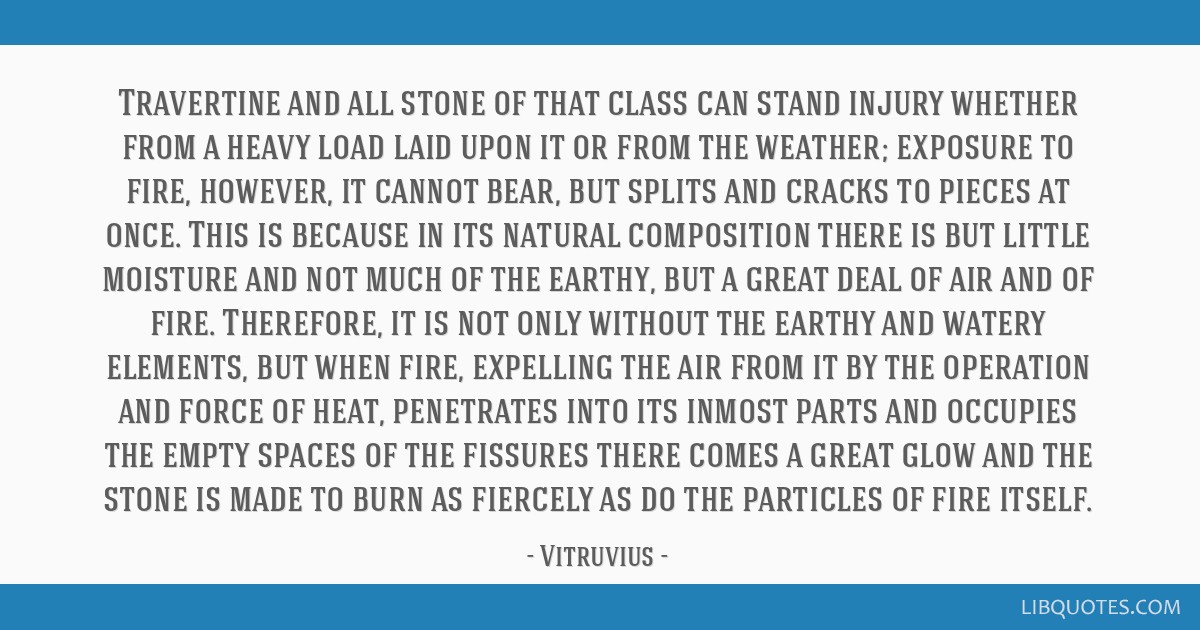Travertine and all stone of that class can stand injury whether from a heavy load laid upon it or from the weather; exposure to fire, however, it cannot bear, but splits and cracks to pieces at once. This is because in its natural composition there is but little moisture and not much of the earthy, but a great deal of air and of fire. Therefore, it is not only without the earthy and watery elements, but when fire, expelling the air from it by the operation and force of heat, penetrates into its inmost parts and occupies the empty spaces of the fissures there comes a great glow and the stone is made to burn as fiercely as do the particles of fire itself.
Chapter VII, Sec. 2 - De architectura (The Ten Books On Architecture) (~ 15BC) - Book II























